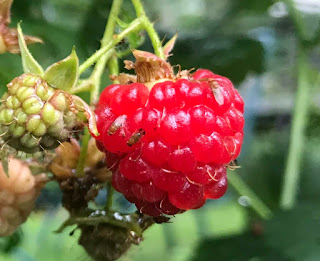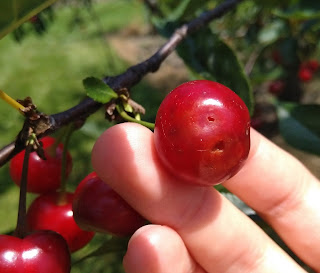What's Killing My Kale Season 3 Episode 13: Growing Kiwiberries in Minnesota

In Season 3, episode 13 of "What's Killing My Kale," Annie talked with Seth Wannmeuhler, a graduate research assistant at University of Minnesota, about kiwiberries. Seth has become an expert on kiwiberries through is research the last several years in which he seeks to develop a new hardy kiwiberry variety that produces well in Minnesota. In addition to his breeding work, he is also helping in the development of management recommendations for this crop, and studying the market potential of kiwiberries in Minnesota farmers' markets.
This episode discusses this work, the differences in the 2 species of kiwiberries grown in Minnesota, and recommended management practices.
Click here to listen to the episode.
You can also listen to this and all of our past episodes on Apple Podcasts and UMN FruitEdge.
Author: Annie Klodd, Extension Educator - Fruit and Vegetable Production




